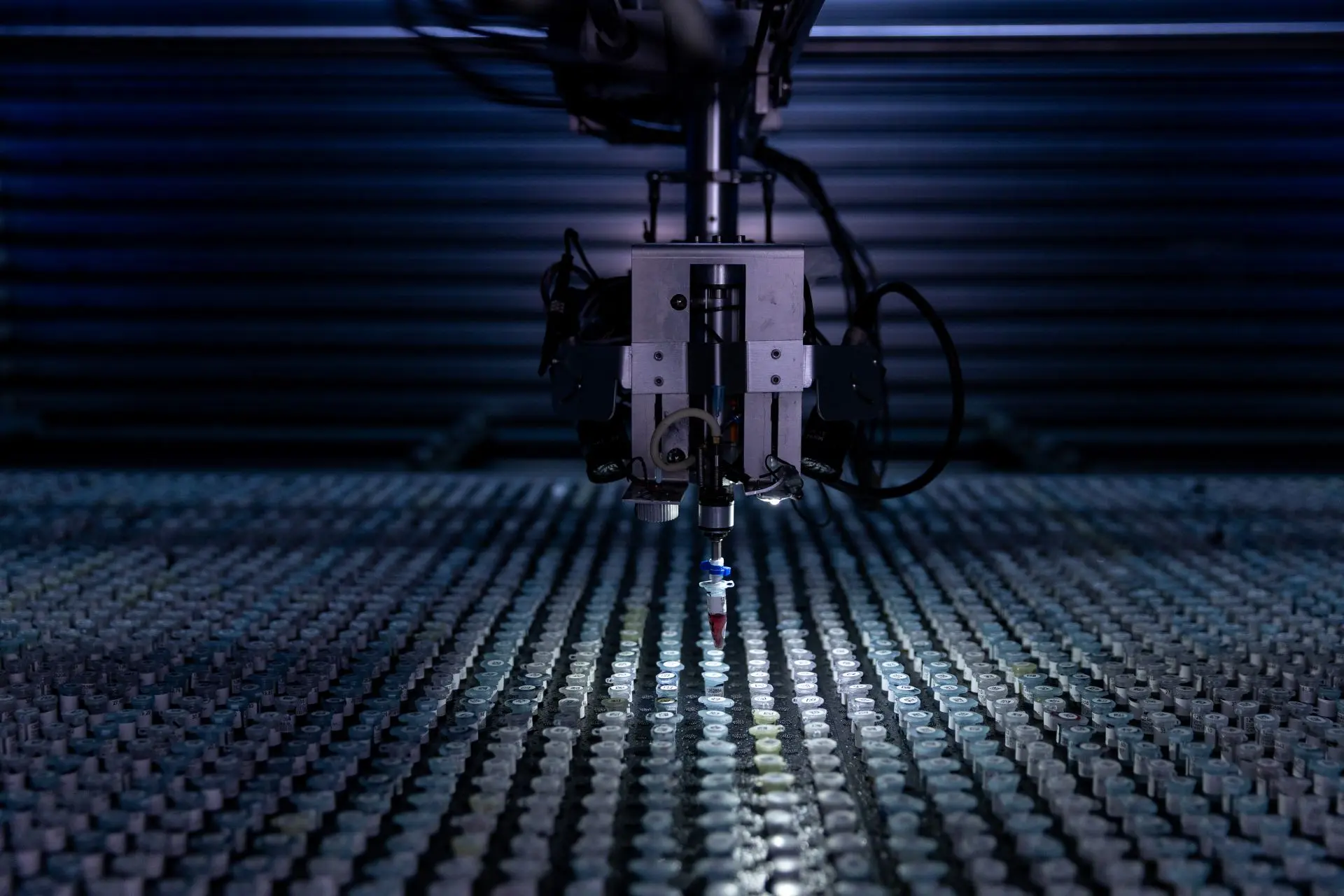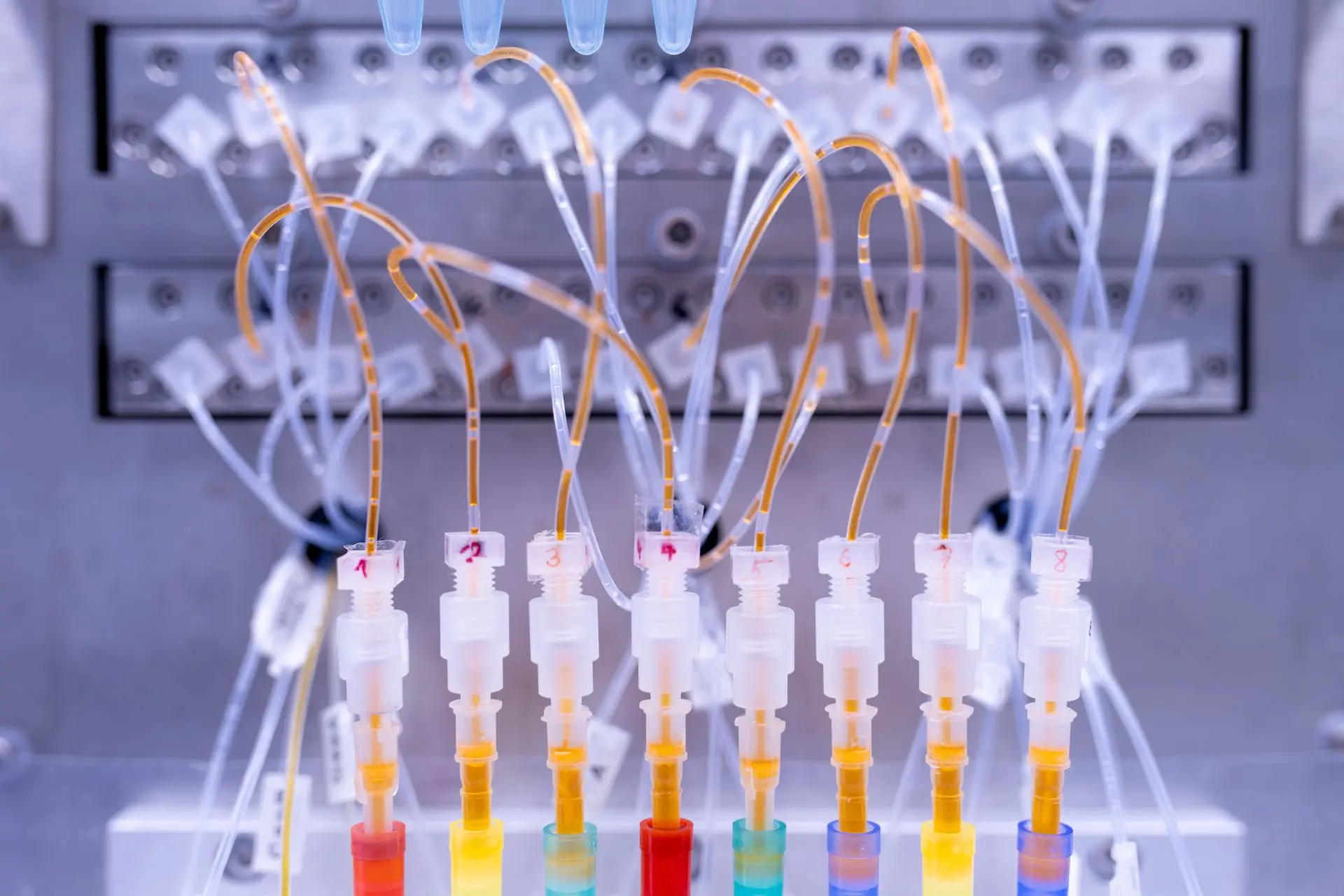PCR Primers & Probes
Primers
Since 1990, we have been offering custom synthesis of oligonucleotides to a growing global customer base. Our oligonucleotides, available in standard quantities of 5 nmol, 10 nmol, and 15 nmol, can be produced with up to 80 bases and are suitable for a variety of applications within molecular biology, including Real-Time PCR. We provide terminal or internal modifications such as phosphate, biotin, amino linker, methylation, and alkylation upon request. We offer two different kinds of purification: Gel purification (GSF), which is suitable for up to 30 bases, and HPLC, which is recommended for improving the sensitivity and specificity of oligonucleotides longer than 40 bases.
When using our primers & probes with a cobas® omni utility channel cassette we recommend ordering at least an amount of 120 nmol primers and 15 nmol probes. For testing with the cobas® omni utility channel Optimization Kit on LightCycler® PRO or LightCycler® 480 the smallest order quantities for primers and probes are sufficient.
Our most custom oligonucleotides can be ordered in our Webshop.
Please find more details and information in our brochure.
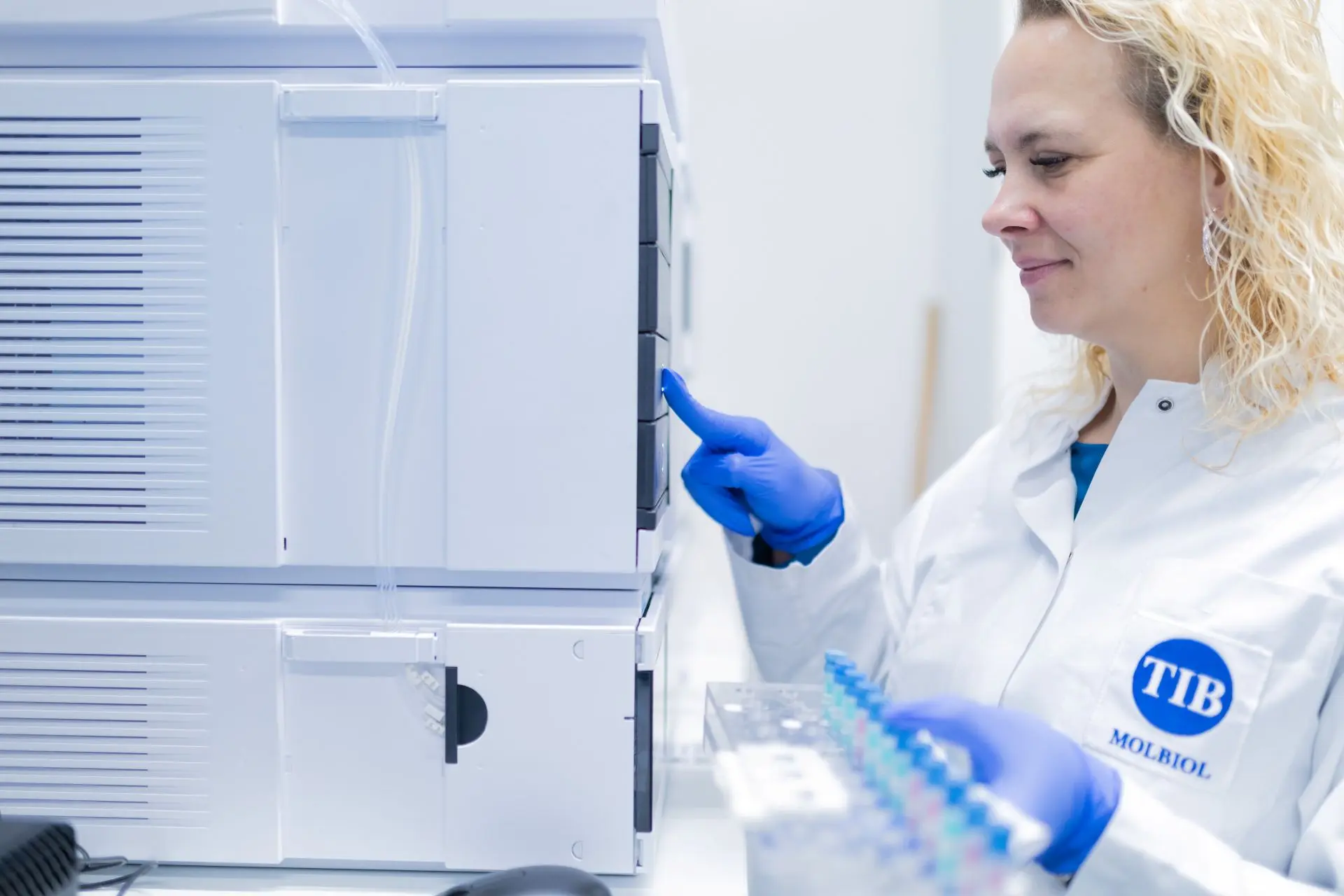
Probes
TaqMan® Probes
are hydrolysis probes used in molecular biology and diagnostics. Designed with a fluorophore and quencher, they bind to target DNA or RNA sequences and release the fluorophore upon cleavage by the polymerase, allowing for detection and quantification during amplification. TaqMan® probes offer high specificity and sensitivity, making them ideal for gene expression analysis, genotyping, pathogen detection, and mutation analysis. They are compatible with instruments such as the LightCycler®, Digital LightCycler®, and cobas® x800. TaqMan® Probes are available in final quantities of 3 nmol, 6 nmol, 15 nmol, 30 nmol, and 150 nmol, as well as in OD range from 1-30 OD (300 pmol for evaluation of new design).
Lightcycler® Probes
are hybridization probes used for both genotyping and quantification on the LightCycler® system. They are designed with a donor and an acceptor, each labeled with different fluorescent dyes, emitting a signal during the PCR annealing phase when hybridized to the target sequence. Widely used in genotyping studies, gene expression analysis, and viral load quantification, they offer high sensitivity, specificity, and flexibility in assay design. Probes are available in quantities of 1 nmol, 3 nmol, 6 nmol, 15 nmol, 30 nmol, and 100 nmol (300 pmol for new design evaluation). Standard 3'-fluorescein and 5'-LightCycler® Red labels can be inverted to 3'-LightCycler® Red labeled probes if needed.
SimpleProbes®
utilize a self-quenching mechanism, where fluorescence is suppressed until the probe binds to its complementary target sequence, resulting in a brighter fluorescent signal. Effective for genotyping applications, they are particularly useful for identifying specific genetic variations or single nucleotide polymorphisms (SNPs), but are not typically used for quantification due to the low signal generated in PCR. The LightCycler® platform, channel 1, is ideal for conducting melting curve analysis (SNP) with SimpleProbes®. They are available in quantities of 1 nmol, 3 nmol, 6 nmol, 30 nmol, and 100 nmol.
For all probes we offer different combinations of Dyes (e.g. 6FAM™, Coumarin, TET™, HEX™, YAK, Cy3®, Cy5®, Cy5.5®) and Quenchers (e.g. TAMRA™, DB, BBQ, BHQ®-1, BHQ®-2) that can be chosen depending on the Probe Type. Our Team will be happy to assist you in finding the perfect solution. Please contact us at [email protected].
Please find more details and information in our brochure.
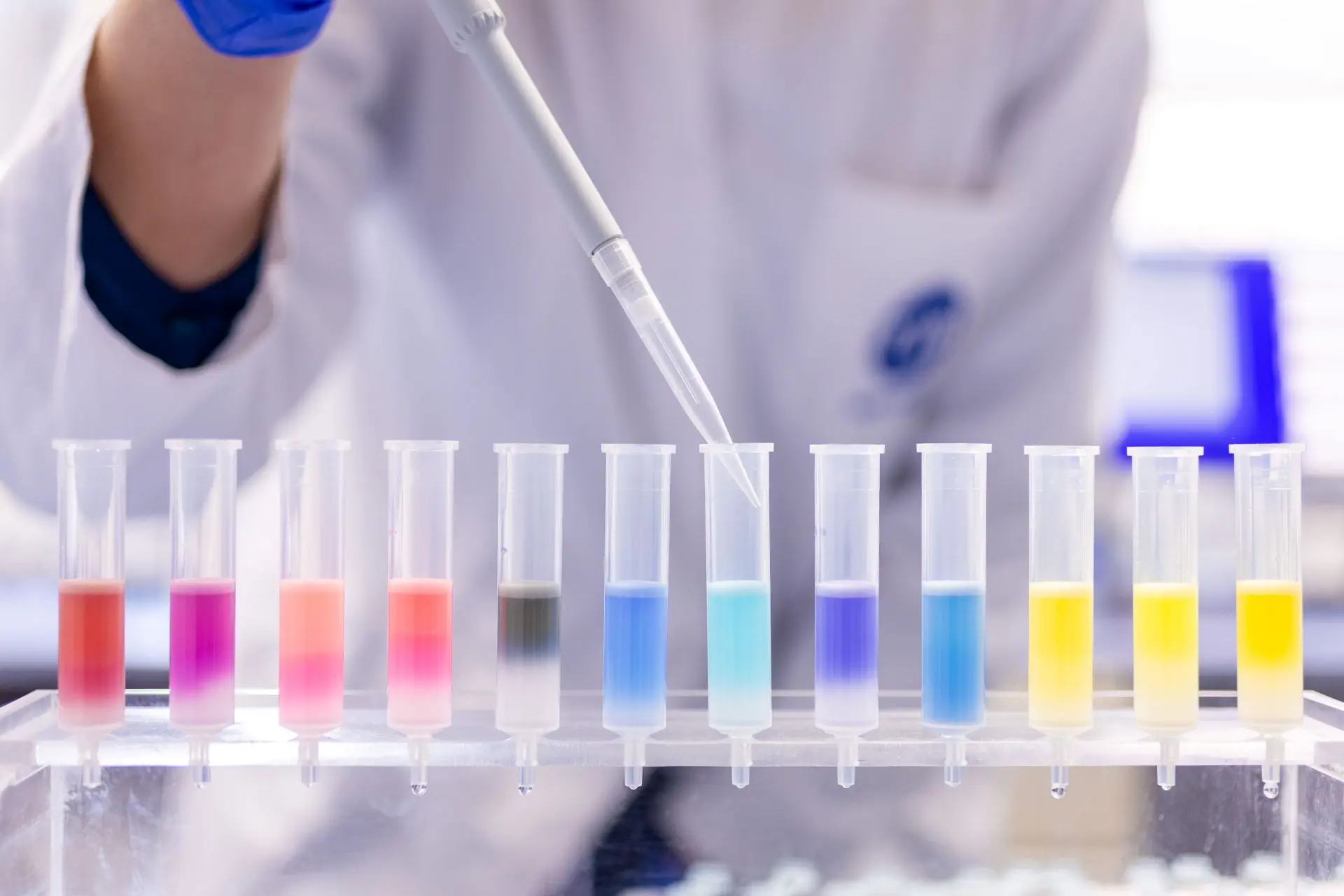
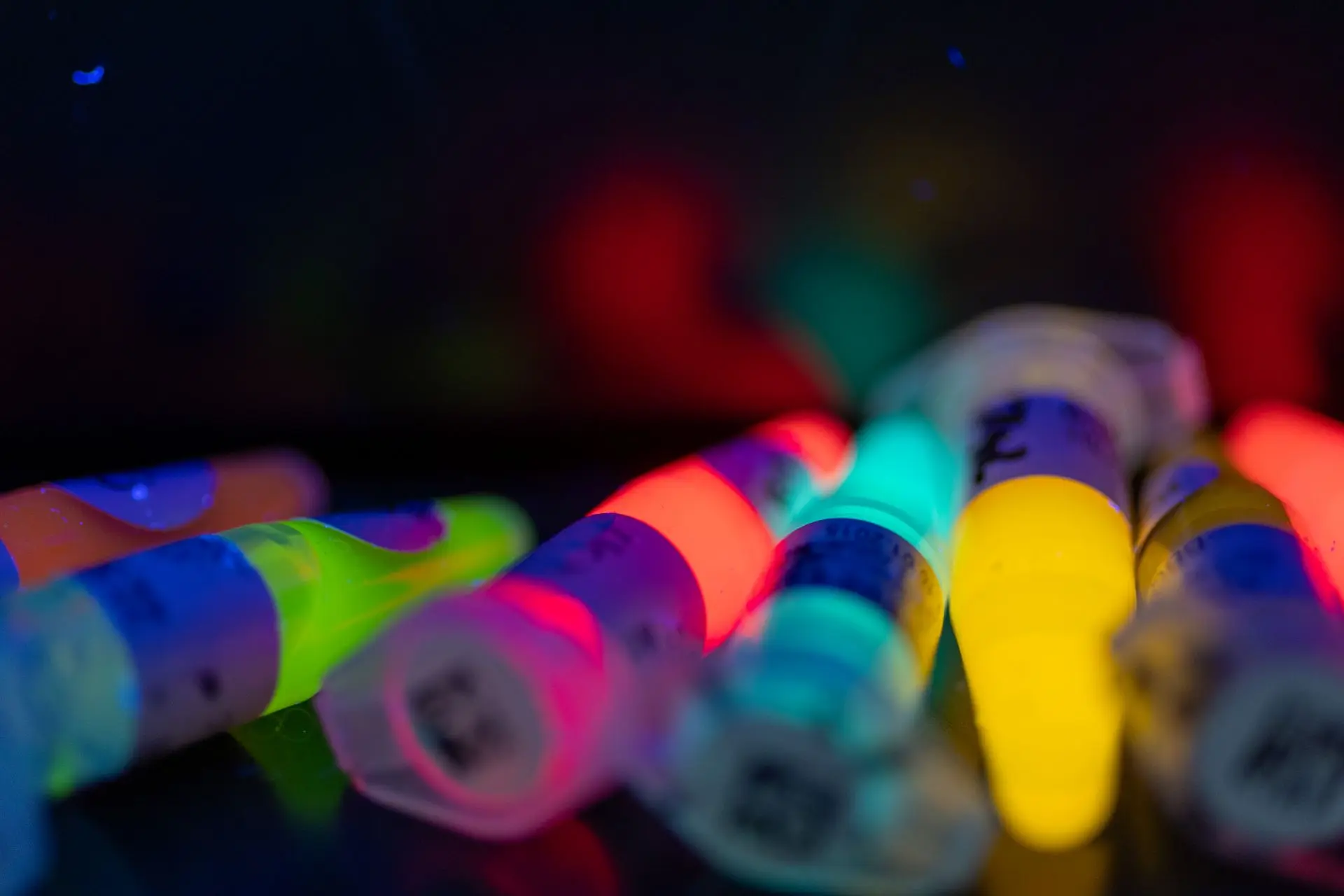
Modifications
For our Primers & Probes we offer 2 kinds of modifications that you can choose from.
Minor Groove Binder (MGB) Modifications
Minor Groove Binder (MGB) Modifications involve attaching a small molecule to the 3’ end of an oligonucleotide that binds to the minor groove of DNA. This binding increases the thermal stability of the DNA duplex, raising the melting temperature (Tm) and enhancing the specificity of the probe-target interaction. MGB modifications allow for the design of shorter probes without sacrificing binding affinity, improving overall assay performance. These modifications are particularly useful in applications requiring high specificity and sensitivity, such as SNP detection, genotyping, and quantitative PCR (qPCR), providing increased stability and precision in molecular diagnostic assays.
LNA Bases
Locked Nucleic Acid (LNA) bases are modified nucleotides that enhance the performance of oligonucleotides in various molecular biology applications. LNAs contain a methylene bridge connecting the 2'-oxygen and the 4'-carbon of the ribose, locking the ribose in the ideal conformation for hybridization. This modification results in increased thermal stability of the LNA-DNA or LNA-RNA duplexes, leading to higher melting temperatures (Tm). Consequently, LNA bases provide greater sensitivity and specificity in target detection, making them valuable for applications such as gene expression analysis, SNP detection, and probe design. LNA-modified oligonucleotides are available for custom synthesis, offering improved performance in challenging assays and enhanced binding affinity for difficult target sequences.
Please visit our Webshop to find the suitable Probe (with modification) for your assay or contact us at [email protected].
We will be happy to assist you in finding the suitable solution for you.
Please find more details and information in our brochure.
